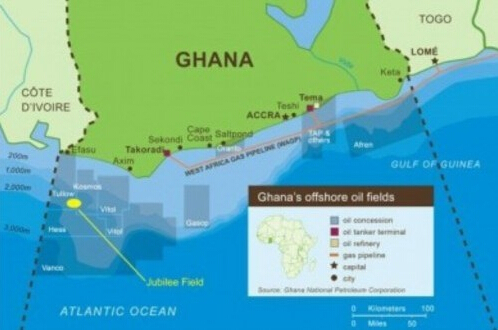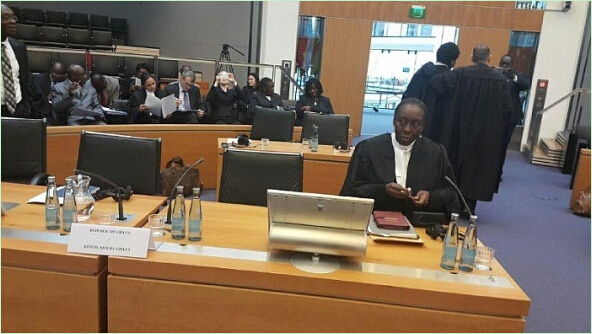UN extends Ghana’s maritime boundary

Ghana's maritime borders...
The United Nation has given Ghana the approval to extend her continental shelve beyond 200 nautical miles.
After Ghana discovered oil in commercial quantities in 2007, the government declared its intension to seek an extension to the country’s continental shelf in order to extend its exclusive economic zone.
In April 2009, the Continental Shelf Delineating Committee submitted its working document to the minister for Lands and Natural Resources (Mines), and later to the United Nations Convention on the Law of the Sea (UNCLOS) that same year.
The continental shelve of Ghana comprises of the sea bed and sub soil of the submarine areas that extends beyond it territorial waters.
On March 10, last year the country’s team concluded its final inputs to the United Nations’ Commission on the Limits of the Continental Shelf (CLCS) regarding a request for the extension of the continental shelf.
This followed consensus reached between Ghana, the sub-commission and the commission on a number of issues on the Foot of the Slope (FOS) and outer limits points.
Ghana is battling the Ivory Coast at the International Court of Arbitration in The Hague after more than a decade over marine time boundary.
The extension means Ghana can now explore more natural resources for economic development.
The Minister of Lands and Natural resources, Nii Osa Mills, announcing this at a media briefing in Accra on Tuesday said, “Ghana has received approval to extend it continental shelve from the United Nation.”
He said: “This will enhance Ghana’s sea bed natural resources beyond its present state… The extension was given to Ghana even before the current legal battle between Ghana and Ivory Coast.”
It is not clear yet how the UN decision will affect a legal suit at the International Tribunal of the law of the Sea (ITLOS) between Ghana and Ivory Coast.

Marietta Brew Appiah Oppong in the court room of the International Tribunal of the law of the Sea (ITLOS)
Ivory Coastsued Ghana, seeking to stop Tullow Oil and its partners from exploring oil over a disputed oil block on the maritime boundry between the two countries.
The dispute involves ownership of portions of the Ghana’s second biggest oil field the Tweneboa-Enyenra-Ntomme (TEN) project.
Other countries, including Brazil, Norway, Russia, Denmark and South Africa have in the past extended their exclusive economic zones to gain access to marine resources such as oil and fish.
Questions / Comments? Contact: Mark@cmaritime.com.cn
HEADLINES
- Do shipping markets want Biden or Trump for the win?
- All 18 crew safe after fire on Japanese-owned tanker off Singapore
- Singapore launching $44m co-investment initiative for maritime tech start-ups
- Cosco debuts Global Shipping Industry Chain Cooperation Initiative
- US warns of more shipping sanctions
- China continues seaport consolidation as Dalian offer goes unconditional